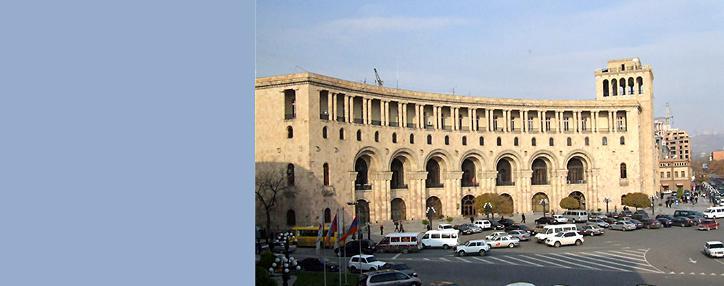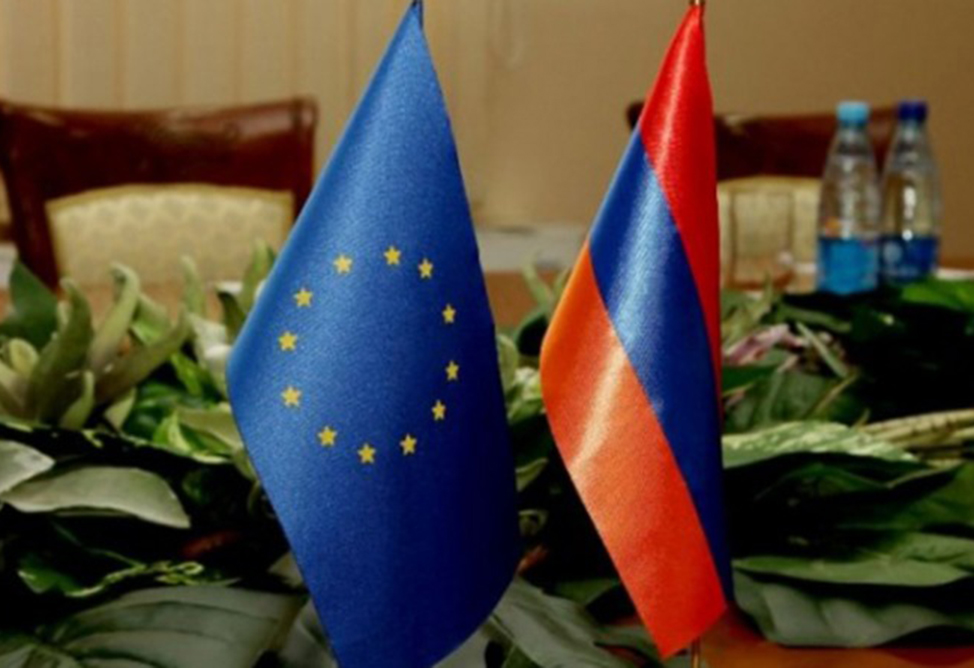Armenian, Azerbaijani foreign ministers may meet early next year
16.12.2013,
19:21
Armenian Foreign Minister Edward Nalbandyan discussed today in Yerevan with OSCE Minsk Group Co-chairs Igor Popov (Russia), Jacques Faure (France) and James Warlick (the United States) and Andrzej Kasprzyk, Personal Representative of OSCE CiO opportunities to organize a meeting with his Azerbaijani counterpart in the beginning of the next year, the press office of the Armenian foreign ministry reports.

YEREVAN, December 16. /ARKA/. Armenian Foreign Minister Edward Nalbandyan discussed today in Yerevan with OSCE Minsk Group Co-chairs Igor Popov (Russia), Jacques Faure (France) and James Warlick (the United States) and Andrzej Kasprzyk, Personal Representative of OSCE CiO opportunities to organize a meeting with his Azerbaijani counterpart in the beginning of the next year, the press office of the Armenian foreign ministry reports.
The process of the Karabakh conflict peaceful settlement was discussed at the meeting in the context of the recent meetings between Armenian and Azerbaijani presidents, Serzh Sargsyan and Ilkham Aliev in Vienna and between the countries’ foreign ministers Edward Nalbandyan and Elmar Mamedyarov in Kiev.
Nalbandyan told OSCE Minsk Group co-chairs that an Armenian serviceman was killed on December 14 in a fire opened from the Azerbaijani side on Tavush section of the Armenian-Azerbaijani border.
He stressed that such provocations hamper the progress in the peace process and undermine the co-chairs’ attempts to settle the matter peacefully.
The minister also stressed that despite the co-chairs’ repeated calls for respecting the cease-fire agreement, Azerbaijan is constantly breaching the cease-fire regime killing not only servicemen, but also civilians.
Karabakh conflict broke out in 1988 when Karabakh, mainly populated by Armenians, declared its independence from Azerbaijan.
On December 10, 1991, a few days after the collapse of the Soviet Union, a referendum took place in Nagorno-Karabakh, and the majority of the population (99.89%) voted for secession from Azerbaijan.
Afterwards, large-scale military operations began. As a result, Azerbaijan lost control over Nagorno-Karabakh and the seven regions adjacent to it.
Some 30,000 people were killed in this war and about one million people fled their homes.
On May 12, 1994, the Bishkek cease-fire agreement put an end to the military operations.
Since 1992, talks brokered by OSCE Minsk Group are being held over peaceful settlement of the conflict. The group is co-chaired by USA, Russia and France..-0---



